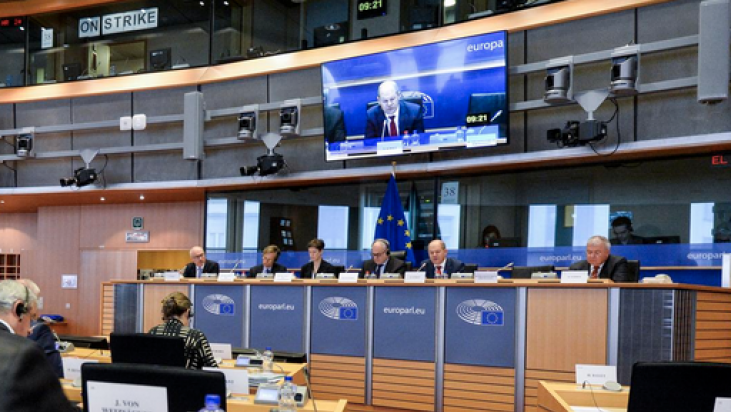Markus Meinzer contributed a blog for Global Alliance for Tax Justice’s committed partner Tax Justice Network commenting on recent developments in Europe’s fight for Tax Justice, namely on Public Country-by-Country Reporting (Public CbCR). The blog is titled “Why is Germany siding with the tax havens against corporate transparency?”
Public CbCR in Europe gained momentum in 2016 when the European Commission published legislative proposals to this effect, and by July last year the European Parliament had adopted it with its amendments. But the proposal got bogged down, with some countries playing delaying tactics, and others sitting on the fence, waiting for someone – in effect, Germany – to take a lead. Germany took its time, following delays caused by coalition negotiations inside the country.
Before the last relevant European Council meeting in June 2018, the German Platform for Tax, Netzwerk Steuergerechtigkeit, issued a statement asking for Germany to “end the blockage for tax transparency”, which you can find here (in German). “The Platform demands that tax transparency become a cornerstone of cooperation. There are signals from France to support this. The federal government must move now!”, Netzwerk Steuergerechtigkeit says.
Finally, during the Council, the German government, through Olaf Scholz, Federal Minister of Finance and Vice-Chancellor of Germany, said it would need more time to define its position.
Various civil society organisations tried in recent weeks to meet with Scholz, including the Tax Justice Network and members of the German Netzwerk Steuergerechtigkeit, part of the Global Alliance for Tax Justice, to discuss his position. Scholz refused to meet any of us.
Then in July, at the Committee on Economic and Monetary Affairs (ECON committee) meeting, Olaf Scholz commented: “CbCR works when everyone is aboard, that applies to countries but it also applies to companies. A situation where we have no reports, that is no progress either, so we do have to find a solution which works in reality. If we were to destroy the basis for receiving the info that we need then we haven’t won anything. So we have to be very cautious in our approach, we need to create an efficient system but one that is accepted by the countries and the companies we need on board. I would state very clearly what we need to take a cautious approach.”
“Scholz seems to favour an old European procedural trick, Meinzer explains: to move the agenda and discussions for CbCR away from accounting forums, where it would be subjected to majority voting, to the tax forum, where it would require unanimous approval. With unanimous voting required, Luxembourg, Malta or Cyprus or any other corporate tax haven can shoot the whole thing down, while the Social Democratic Party (SPD) and Germany can continue playing the indecisive role. That seems to be Scholz’ plan”.
“Under the previous German government, Meinzer analyses, the nominally left-wing SPD had been able to hide its pro-corporate sympathies by claiming that it was Finance Minister Wolfgang Schäuble, from the right-wing ruling Christian Democratic Union of Germany (CDU), who was blocking progress. That excuse is now gone – and Scholz has now made his and Germany’s position clear. He has acted like the Roman emperor giving the thumb-down to the defeated gladiator. Scholz backs corporate financial secrecy, and by implication higher inequality and corporate skulduggery across Europe”.
Photo – Benoît Bourgeois ©EuropeanUnion2018
